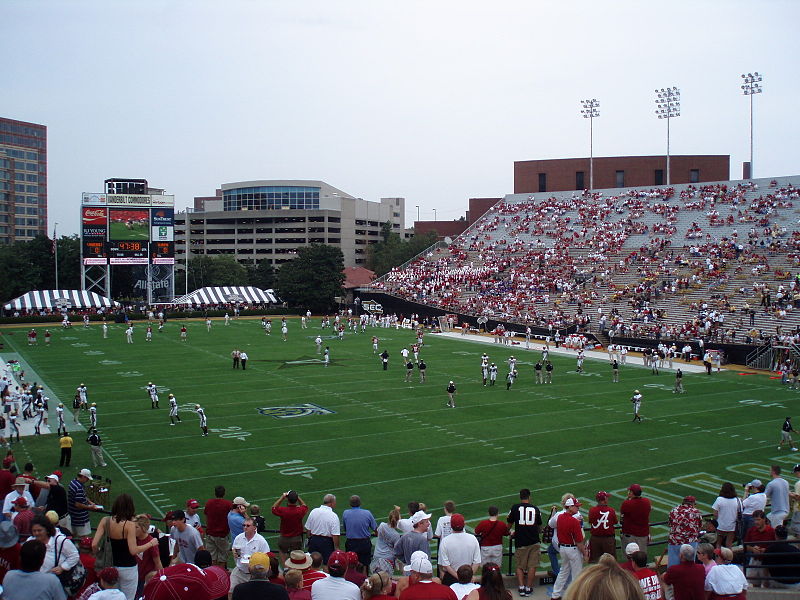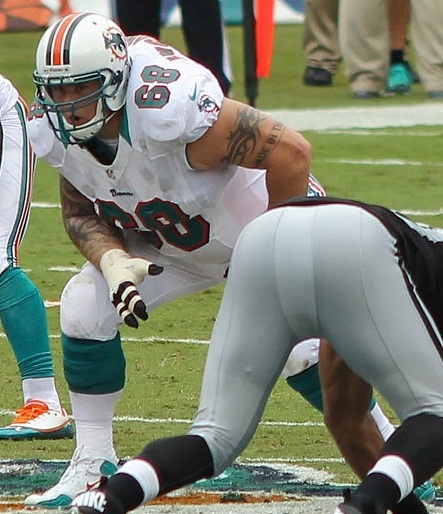Why My Love Affair With Football Is Over

Anyone that knows me knows how much I love sports. I've always said baseball is my religion and football is my political ideology. Given the events that have taken place this year, I've never thought that to be more true.
**
The sport of football has seen a very tumultuous year. We started off on a great note when a Ravens player wanted to use the Super Bowl to promote gay rights. That, however, led to a 49ers player saying a lot of not so nice things about gay people. While many football players (and athletes in general) came out and said they disagreed with him, it still exposed this football culture that has been cultivating, and that, as fans, we largely have ignored. In hindsight, this story was really the match that started the forest fire.
In November, we learned that the NFL had plans for a gay player to come out and remain active, a first for professional football, but that it fell apart. There are many different reasons attributed to why, but none of them really matter. The fact is that no NFL players came out, even after NBA player Jason Collins came out in an article for Sports Illustrated to relatively little backlash.
Of course, in all fairness, we should consider the fact that he isn't playing for any team this year. Him being past his prime and not playing well last season only further muddles whether he hasn't been signed because of his sexual orientation or because he just doesn't play basketball at an elite level anymore. Still, most would say at least progress has been made in basketball, whereas we have yet to see any in football.
**
Though it happened at the end of 2012, Jovan Belcher killing his girlfriend and himself in a murder-suicide no one could have seen coming was a big story. It seemed to be an isolated incident, until people started saying that he had a problem with concussions. Though the team came out and said he didn't have a history of concussions, it still opened up talk about the impact the sport has on the lives of players after they're finished with their careers. People immediately pointed to the suicides of past players, like Junior Seau and Dave Duerson, that have been blamed on concussions they suffered from football. All of this led up to the discussion of a documentary that was being made, titled "League of Denial", that focused on the NFL's mishandling of concussions. However, ESPN pulled out of the documentary in August, and many said Roger Goodell and the NFL played a large part in pressuring them to do so. Naturally, he and the league denied those claims. Regardless, this incident still highlighted a health problem running rampant in the NFL and a blatant ignorance of that problem by major officials in the league.
**
Next we turn our attention to Steubenville, Ohio. In March, two high school football players were convicted of raping a 16-year-old girl at a party. When the incident first happened, it immediately grabbed the nation’s attention, thanks to it being tweeted and put on various other social media platforms by attendees of the party. Recently, four more people have been charged in the rape case, but this time those being charged are school employees. It has also been underreported that some of the charges being brought against these employees have to do with an entirely separate rape of a 14-year-old girl from April 2012. While it is clear people are being punished for what happened, it still brought to light some grotesque things and opened the discussion on the privileges football players and even coaches think they have just because they play, or are involved with, the sport of football.

However, if we look at this case within the narrative of football privilege we have seen this year, even specifically concerning solely rape, it's hard to ignore the fact that the culture in football creates boys and men who think it is okay to do things like this, and who think they can get away with it just because they play football. All of this is tied up in a larger discussion of why that is, and it comes back to football being a large-scale perpetuator of gender stereotypes, specifically "masculinity". While this is an important discussion to have, and certainly plays a role in my problems with the sport, for now we will just focus on the fact that football does create this culture, and that both the Steubenville and the Vanderbilt case show that.
We can also see that in the Jameis Winston case. While he was not charged with anything due to lack of evidence, it is hard to believe that if a proper investigation had taken place the same result would have occurred. I would like to make one thing clear right now. No one ever proved Jameis Winston did not rape that girl. It was simply determined they could not prove beyond a reasonable doubt that he did it. In our legal system, everyone is innocent until proven guilty, and we must treat them as such, even if we aren't given the chance to prove them guilty.
Now, onto the problematic issues with this case. It took almost an entire year for the case to be brought to the State Attorney, and that only happened after the press made the story public. I am not shocked that after eleven months it was hard to find enough evidence to charge anyone of rape.
Also, during investigations this happened:
"A Tallahassee detective told an accuser’s attorney that Tallahassee is a “big football town” and her client’s life could “be made miserable” if she pursued a sexual assault case against Florida State quarterback Jameis Winston."
It almost seems straight from the script of a movie, something I would need to suspend disbelief for, because there is no way this could actually happen in real life, right? All of this stems from that great "football privilege" we see more and more in all the wrong ways.
**

As a Patriots fan I was devastated as to what it would mean for the team, especially with the other tight end, Rob Gronkowski, still injured. As a human being, I was disgusted and confused. How could I have such a bad judge of character that I actually looked up to someone who would commit murder? And how did he think that was an okay thing to do? Aaron Hernandez was so delusional that he actually thought that being a high profile football player would help him get away with taking the life of another human being. Scratch that, taking the lives of three human beings.
As I stated before, everyone is innocent until proven guilty and Aaron Hernandez has certainly not been found guilty yet. Though, it is hard for me to believe a case against an athlete of this caliber would have gotten this far if there was not enough evidence for a conviction (see: Jameis Winston). This is a perfect example of athlete privilege gone wrong, but I think it is the one thing we have the potential to get right. That is probably more due to the fact that it is being handled by our legal system and not the NFL, but the point still holds.
I think O.J. Simpson taught us a lot about football privilege (so much so that we didn't let him get away with anything else, even if it was a lesser charge). While it is certainly not okay for players to rape anyone, it is most definitely not acceptable in any way to take the life of another human being. Hopefully this case is handled properly and the correct verdict is made, whichever one it may be. However, whether or not we tolerate it, this still points to the issue of football privilege, and how bad it is if players think they can get away with murder just because they play football.
**

"There are many problems with the way we view victims of bullying in this society, but the way we view and discuss adult and/or male victims of bullying is abhorrent.
Why is it so unfathomable that being made fun of and taken advantage of to no end, even as an adult, can be detrimental to a person? Why does a person have to have something mentally wrong with them if they’re bullied? Why does a man have to physically fight an aggressor to prove himself and his worth, when we teach children to not physically fight back when bullied? [...] It should not be expected that Martin fight back or hit his bully, just because he’s an adult, just because he’s a man, or just because he’s a football player.'
This is also a talk that comes back to the culture of "masculinity" perpetuated by football. When I read about the Incognito/Martin story, I can't help but be reminded of this discussion that I have been a part of all too often this year.
**
One final point I have to bring up is the attitude that fans have towards football. While we are so quick to condemn players, coaches, the NFL, the NCAA, and anyone else who may be involved in the sport, we hardly ever take a step back to look at ourselves and the way we both effect and are affected by the sport. When that gay NFL player was considering coming out, he said the one thing he was most scared of was not fellow player's reactions, but the fans' reactions.
After the Iron Bowl, a woman was shot and killed, because, as one witness reports, she wasn't a big enough Alabama fan and wasn't disappointed enough when they lost.
That is crazy. That is the single most insane thing I've heard since I learned about H.H. Holmes.
Fans never cease to amaze me. They can be the most supportive people for their team, but they can also be the most destructive. More than in any other sport, fans of football tend to take their fandom to the extreme, getting mad when other fans aren't as dedicated as they are, rioting when their teams don't do well and even sending death threats when a player does something they don't agree with. While we see examples of this in any sport, it is much more exaggerated in football, and that ties back into the idea of football being the most aggressive and "masculine" sport in our society. This idea is something I’ve pointed to in all my other problems with the sport and it points to how society is both affected by and effects sports more than we realize, but sometimes, it is not for the better.
**
I have been a football fan since the day I was born. It's in my blood and it's a large part of the way I identify myself. However, as I have made very clear, football is going through a rough time. Society is changing, and parts of the sport are attempting to change, but it is so rooted in antiquated notions and practices that it seems almost impossible for it to keep up with the times. Unless the very way we go about looking at football changes, the sport and all of the bad things that come with it are never going to change.
For that reason, my interest in the sport has been quickly dwindling. As I stated before, I always say baseball is my religion and football is my political ideology. I say this, because much like religion, baseball is something that just is in my life. Just like how people go to church every Sunday and celebrate Christmas and Easter because it is just what they’ve always done and something they’ve never even considered questioning, starting in March I watch baseball every day I can, and I celebrate Opening Day and the World Series. It is just something I haven’t seen the need to question since I started watching baseball.
Much like politics, football is something I just get and something I fell in love with from the second I discovered it. However, also like politics, football is something that I have grown to dislike the more bureaucratic it becomes, and the more isolated from reality it remains. While I'm not ready to completely give football up yet, each week I find myself asking the same question: is it even worth it anymore?



